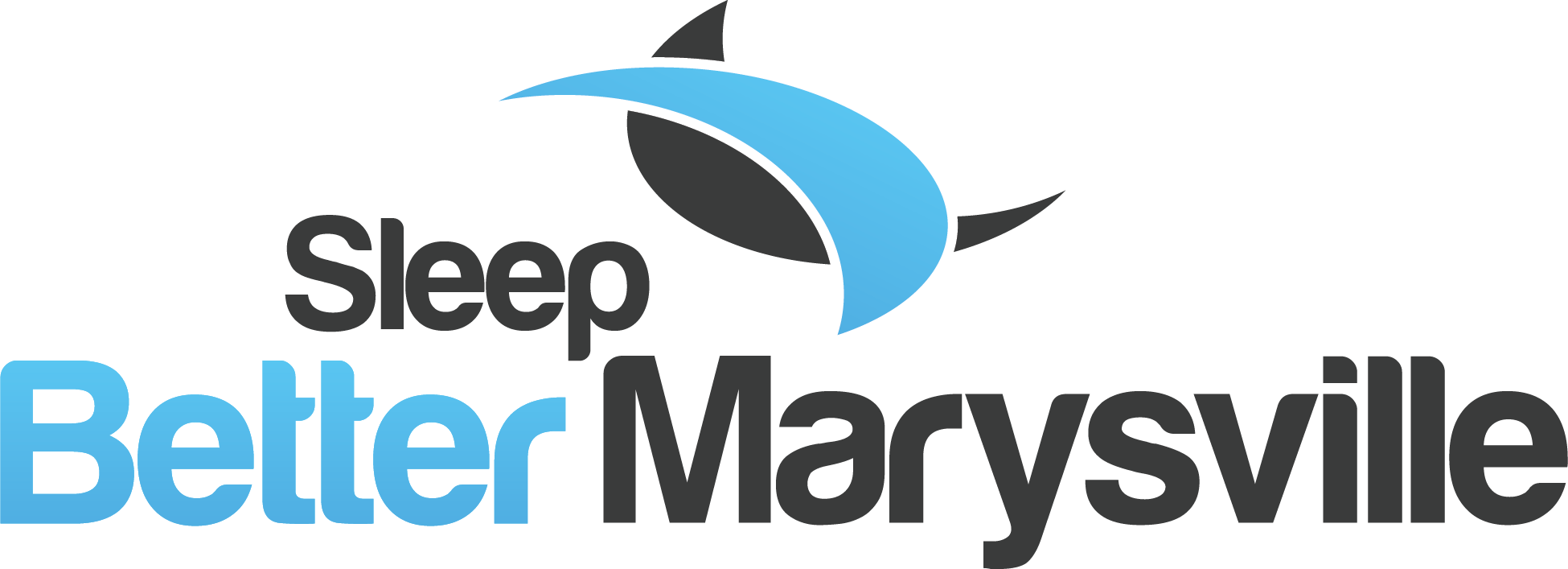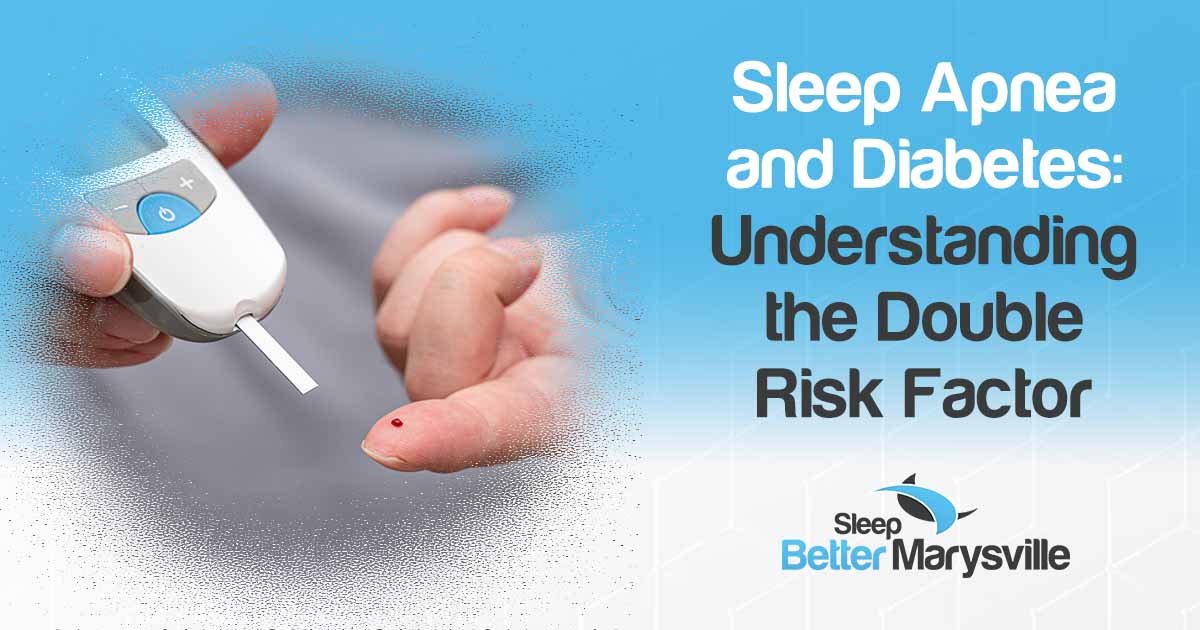Sleep apnea and diabetes are two common conditions that can negatively impact health, but many people are unaware of the connection between the two. Those who suffer from both conditions face a unique set of challenges, as sleep apnea can worsen diabetes symptoms and vice versa. Understanding this relationship is crucial for better managing both conditions and reducing the risk of complications. This blog post explores the connection between sleep apnea and diabetes, how they influence each other, and the importance of addressing both conditions simultaneously.
The Connection Between Sleep Apnea and Diabetes
What Is Sleep Apnea?
Sleep apnea occurs when breathing stops and starts repeatedly during sleep, causing drops in oxygen levels. The most common type is obstructive sleep apnea (OSA), in which the throat muscles relax too much and block the airways. Central sleep apnea is less common when the brain doesn’t send the right signals to control breathing.
How Sleep Apnea Affects the Body
Sleep apnea can lead to a range of health problems. The repeated drops in oxygen levels caused by apneas put stress on the cardiovascular system, raising the risk of hypertension, heart disease, and stroke. The disrupted sleep patterns associated with sleep apnea also contribute to daytime fatigue, affecting mental and physical well-being. The lack of restorative sleep also impacts the body’s ability to regulate blood sugar effectively, increasing the likelihood of developing conditions like diabetes.
Understanding Diabetes and Its Impact on Health
Diabetes is a long-term condition that affects how the body manages blood sugar (glucose). There are two main types: Type 1, where the body can’t produce insulin, and Type 2, where the body becomes resistant to insulin or doesn’t make enough of it. High blood sugar over time can cause complications like nerve damage, kidney disease, and vision problems. Managing blood sugar levels is key to preventing these issues and improving health.
How Sleep Apnea Increases the Risk of Developing Diabetes
Insulin Resistance and Sleep Apnea
One of the key ways that sleep apnea can increase the risk of developing diabetes is through its effect on insulin resistance. Research has shown that the frequent drops in oxygen levels caused by sleep apnea can trigger inflammation in the body. This inflammation can interfere with the normal function of insulin, leading to insulin resistance, a condition where the body’s cells do not respond appropriately to the hormone. Over time, insulin resistance can contribute to developing Type 2 diabetes, as the body needs more insulin to regulate blood sugar levels effectively.
The Role of Poor Sleep Quality in Blood Sugar Regulation
Sleep apnea leads to fragmented sleep, which prevents individuals from reaching the deeper stages of restorative sleep. This lack of quality sleep can disrupt the body’s natural processes for regulating blood sugar. During deep sleep, the body typically regulates glucose metabolism, but these processes are interrupted by sleep apnea. This disruption can cause fluctuations in blood sugar levels, increasing the risk of developing diabetes. Furthermore, poor sleep quality can make it more difficult for individuals to maintain healthy lifestyle habits, such as exercising or managing stress, which are crucial for blood sugar control.
How Diabetes Can Exacerbate Sleep Apnea Symptoms
Blood Sugar Fluctuations and Sleep Disruptions
For individuals with diabetes, fluctuations in blood sugar levels can contribute to worsening sleep apnea symptoms. High blood sugar levels can cause increased urination, leading to frequent waking during the night. This disrupts sleep and can make it harder to manage sleep apnea, as the body is less likely to enter the restorative sleep stages needed for recovery. On the other hand, low blood sugar (hypoglycemia) can also cause symptoms such as sweating, shaking, and anxiety, which can disturb sleep and lead to further sleep deprivation. These blood sugar-related sleep disruptions can create a vicious cycle, making both conditions harder to manage.
Impact of Diabetic Complications on Breathing Patterns
Diabetic complications, such as nerve damage and cardiovascular issues, can also hurt breathing patterns during sleep. For instance, nerve damage can affect the muscles that control breathing, making it more difficult for the body to maintain proper airflow during sleep. Additionally, individuals with diabetes may be at higher risk for heart disease, which can contribute to the development or worsening of sleep apnea symptoms. Poor circulation and heart-related issues can affect how oxygen is transported throughout the body, leading to more frequent or severe apneas.
The Importance of Addressing Both Conditions Simultaneously
Why Treating Sleep Apnea Is Crucial for Diabetic Patients
Managing sleep apnea is especially important for individuals with diabetes. Untreated sleep apnea can exacerbate insulin resistance, making it more difficult to control blood sugar levels. Addressing sleep apnea through CPAP (Continuous Positive Airway Pressure) therapy can help improve sleep quality, reduce inflammation, and support better insulin function. By treating sleep apnea, individuals with diabetes may also experience fewer fluctuations in blood sugar levels and a reduction in other health risks associated with both conditions.
The Benefits of Integrated Care for Sleep Apnea and Diabetes
Integrated care, which involves treating sleep apnea and diabetes together, offers significant benefits for patients. Coordinated treatment can help reduce the burden of both conditions, improve overall health, and lower the risk of complications. For example, healthcare providers may recommend lifestyle modifications, such as weight management and physical activity, to address both conditions simultaneously. In some cases, medication adjustments may be necessary to account for the impact of sleep apnea on blood sugar regulation. By working with a healthcare team that understands the interplay between sleep apnea and diabetes, individuals can receive more comprehensive care and achieve better long-term health outcomes.
How to Manage Sleep Apnea and Diabetes Together
Lifestyle Modifications for Better Sleep and Blood Sugar Control
Adopting healthy habits is essential for managing both sleep apnea and diabetes. Regular exercise can improve insulin sensitivity and reduce sleep apnea symptoms. A diet high in fiber, lean proteins, and healthy fats helps regulate blood sugar, while avoiding large meals before bed can prevent sleep problems. Maintaining a healthy weight is crucial, as extra weight increases the risk of both conditions. Stress management techniques, like meditation and relaxation, can also improve sleep and blood sugar control.
The Role of CPAP Therapy in Managing Sleep Apnea
For individuals with obstructive sleep apnea, CPAP therapy is the most common treatment. A CPAP machine delivers continuous airflow through a mask, helping to keep the airways open during sleep. For those with both sleep apnea and diabetes, CPAP therapy can have significant benefits. Research has shown that CPAP treatment can improve blood sugar control by reducing the sleep disruptions contributing to insulin resistance. It can also enhance overall sleep quality, helping individuals feel more rested and energetic throughout the day, which can support healthier lifestyle choices and better diabetes management.
Monitoring Blood Sugar Levels and Sleep Patterns
Monitoring blood sugar levels regularly is crucial for managing diabetes and can benefit individuals with sleep apnea. Keeping track of blood sugar fluctuations can help identify patterns related to sleep disturbances, such as higher or lower blood sugar levels at night. In addition, using a sleep tracker or working with a healthcare provider to monitor sleep patterns can provide valuable insights into how sleep apnea affects sleep quality and blood sugar regulation. With this information, individuals can make more informed decisions about their treatment plan and make necessary adjustments to improve both conditions.
Contact Sleep Better Marysville for Comprehensive Support in Managing Sleep Apnea and Diabetes
Managing both sleep apnea and diabetes can be challenging, but it is possible with the proper support and treatment plan. Sleep Better Marysville is dedicated to helping individuals with both conditions receive comprehensive care. By offering a range of treatment options for sleep apnea, including CPAP therapy and lifestyle advice, Sleep Better Marysville can help patients improve their sleep quality and overall health. If you or a loved one is struggling with sleep apnea and diabetes, contact Sleep Better Marysville today at (614) 777-7350 to explore how integrated care can make a difference.

